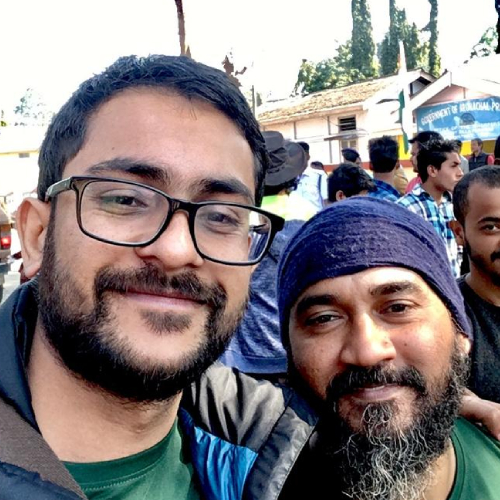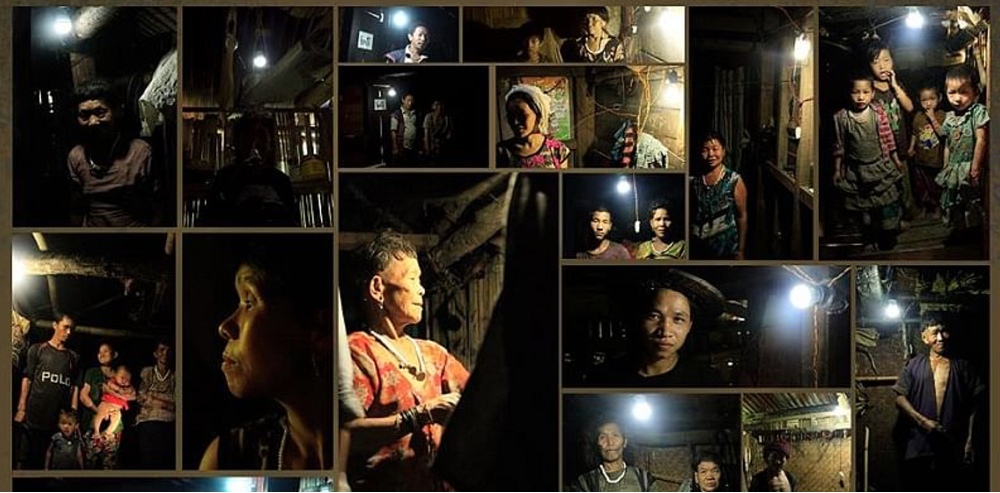When two friends Merwyn Coutinho and Rajiv Rathod set off on an impulsive trek to Gandhigram, a remote village in Arunachal Pradesh, little did they know they were embarking on a course to light up 273 homes across 29 villages with electricity. After having quit their corporate jobs, Merwyn and Rajiv have spent the last decade travelling across India. Picking up odd jobs in local communities to sustain their travels, both Merwyn and Rajiv believe that life needs to be experienced rather than just going through the motions. In 2010, after completing a 7-day trek to the most remote village in India, Merwyn and Rajiv reached Gandhigram. Completely cut-off from the mainstream world and only accessible by foot, Gandhigram is located in the lush jungles of the Eastern Himalayas and had no electricity at all. After spending a day with the locals, they fell in love and vowed to come back the following year to celebrate Christmas with their new family. When they returned, the brought 120 lightbulbs with them as a gift for their hosts which they distributed among the villagers. Soon word spread to the surrounding villages who started approaching Rajiv and Merwyn to light up their homes too.


What makes The Batti Project truly unique is their solution-focused approach. Unlike traditional NGOs and outreach programs, The Batti Project works with the local communities to understand their needs and help them make informed decisions. Speaking on the subject, co-founder Rajiv says, “we don’t romanticize the idea of outreach with faux empowerment. A lot of other NGOs like to think they are doing good without understanding the long-term implications for the local community. You can’t just install a million-dollar windmill in remote village and then expect the locals to maintain it without any education and training. Our goal is to empower through education and involving the locals in the process from the beginning. We believe a strong sense of community-building is important. We focus on creating self-sustainable communities who don’t have to rely on anyone else for their maintenance.”
Like many other businesses, The Batti Project was adversely impacted by the pandemic. With people and corporations rationing out spends, funding dried up which caused the team to put their 120-village lighting project on hold. However, that hasn’t deterred the team from their goal. Taking the circuit break as an opportunity to plan for the future, the pandemic gave Merwyn and Rajiv new perspective. “When we first went into lockdown, Merwyn and I were stranded in Guwahati for 55 days. This was the first time in 10 years the both of us had stayed in one place for that long. For the first time we had the chance to be still. It help put a lot of things into perspective. It gave us the opportunity to plan and envision what we want the future of Batti Project to be. We had never planned to be social entrepreneurs, it just happened. We were lucky that people believed in us and we were able to crowdfund all our projects. But now, if we want to make meaningful and deep-rooted change, we need to be more strategic”, says Rajiv.
The future is definitely bright for The Batti Project as they work on expanding self-sustainable projects apart from solar lighting, which include waste management and recycling projects in local, indigenous villages. The team’s resilience to work through adverse conditions in order to provide a ray of light for India’s indigenous communities make The Batti Project a beacon of hope for their community.
